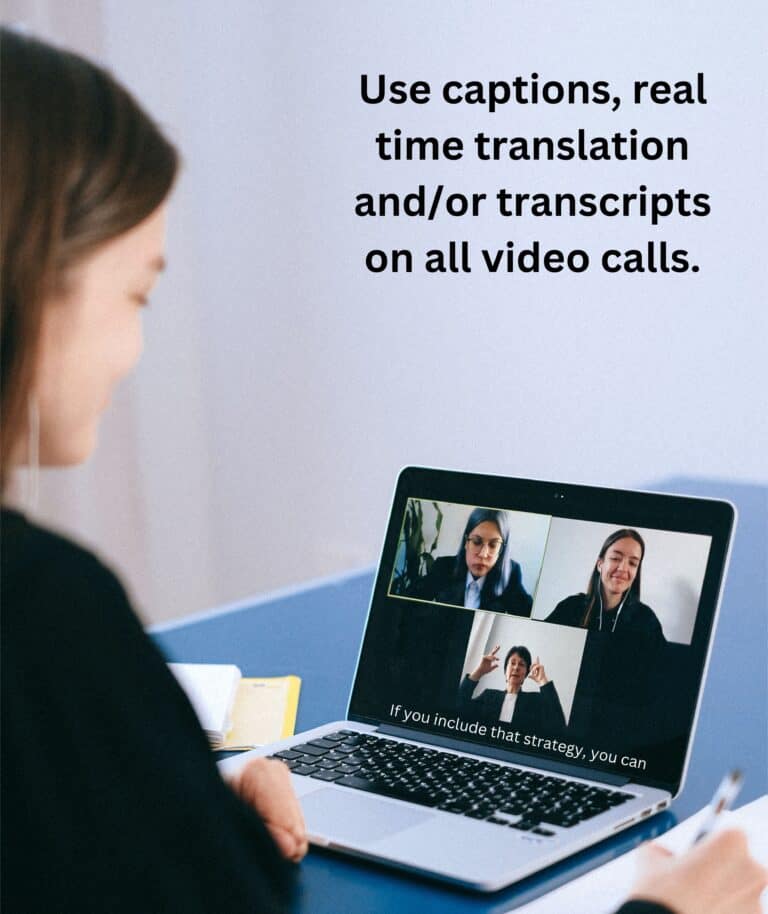May Speech and Hearing Month 2023
May is Speech and Hearing Month
Make Your Virtual Spaces Accessible to People with Hearing Loss
One in five Canadians lives with hearing loss (Canadian Academy of Audiology). That means 20 per cent of the people around us might have trouble hearing during a phone call or virtual meeting.
Hearing access is a basic right. In Canada, employers must provide accommodations to persons who require them, up to the point of undue hardship. Accommodations can include improving hearing access during virtual interviews and work meetings.
When virtual meetings are accessible, people know that their engagement is valued. They are encouraged to participate, know that their contributions are respected, and encounter less stress and mental fatigue.
While many companies have embraced virtual work, we are still learning how to make these new workspaces inclusive. Solutions can be easy and cost effective, and many will be beneficial for all meeting participants.
- Use captions, real time translation and/or transcripts as a standard practice on all video calls.
- Ask if there are requests for access needs (anonymously, when possible).
- Offer both computer and telephone audio.
- If possible, record meetings, with everyone’s permission, so the meetings can be viewed later if needed.
- Provide materials in an accessible format before the meeting.
- If the meeting is long, include breaks to help with listening fatigue.
- Wear headphones with a microphone that can more clearly pick up your voice.
- Make sure your face is well lit and visible for those relying on facial cues and speech reading.
- Some employees may need an assistive listening device to connect their hearing aids or cochlear implants directly to their computer.
- Provide occasional recaps to assist those who have lost the thread of the conversation.

The creation of an accessibility policy for virtual meetings can eliminate the guesswork. Keep it simple and share it with all staff once a year during May’s Speech and Hearing Month.
Additional Resources
Much of the information above is found in resources produced by the Canadian Academy for Audiology for meeting hosts and for people with hearing loss.
FOR MEETING HOSTS
Ten Ways to Improve Hearing Access during your Next Virtual Meeting (pdf document) – https://canadianaudiology.ca/wp-content/uploads/2020/05/CAA-Ten-Ways-to-Improve-Hearing-Access-During-Your-Next-Virtual-Meeting-May-2020-2.pdf
FOR PEOPLE WITH HEARING LOSS
(but also beneficial for people hosting meetings or on calls)
12 Phone and Video Calling Solutions for People with Hearing Loss (poster) – https://canadianaudiology.ca/wp-content/uploads/2021/05/CAA_StayConnected_Poster.pdf
12 Phone and Video Calling Solutions for People with Hearing Loss (animated video-graphic) – https://youtu.be/Rc8kFmkQh-Q
Phone and Video Calling Solutions for People with Hearing Loss (booklet) – https://canadianaudiology.ca/wp-content/uploads/2021/05/CAA_Telecommunication-Solutions.pdf

